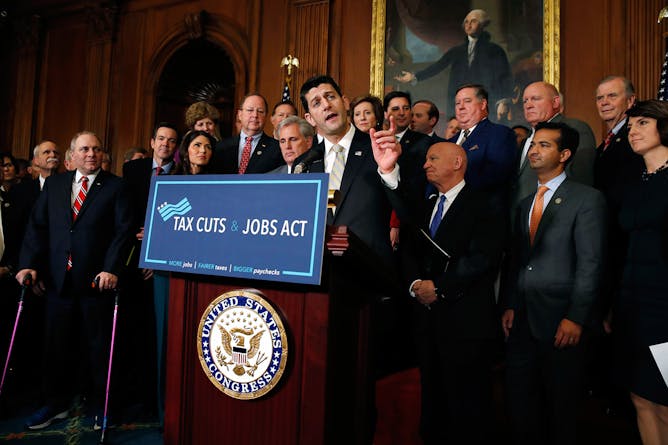|
From Spain to New Zealand and Iceland to Yosemite National Park, heavy tourism is damaging many of the world’s most scenic destinations. Global travel generates jobs and revenues, but this year anti-tourism protesters took to the streets in Barcelona, Dubrovnik and elsewhere to say enough was enough. Penn State University’s Carter Hunt, who studies how tourism affects destinations, offers some guidelines for travelers about ways to avoid wearing out your welcome.
While many Americans have recovered from the job losses suffered during the Great Recession, one age group hasn’t: 16- to 24-year-olds, about half of whom aren’t working today versus 40 percent a decade ago. How can we get them back to work? It starts with a stronger economy, argues Ohio State economist Randall Olsen, who believes the Republican plan to cut the corporate tax rate is the right medicine to do just that.
And – as 2017 draws to a close – we’re asking for your feedback on our most popular and memorable stories of the year. The results will be announced in a special newsletter next week. Please answer our one-question survey and let us know.
|

The view of Cartagena, Colombia from Tierra Bomba. Despite being one of the most visited cities in South America, Tierra Bomba remains highly impoverished. Why doesn’t large-scale tourism benefit such a community?
Carter Hunt
Carter A. Hunt, Pennsylvania State University
At many popular destinations, residents are protesting against crowding, rowdy visitors and low wages. With some research, travelers can use their visits to enrich host areas instead of harming them.
|

House Speaker Paul Ryan talks about the GOP tax plan.
AP Photo/Jacquelyn Martin
Randall Olsen, The Ohio State University
Unlike other age groups, 16- to 24-year-olds haven't recovered the job losses they suffered during the Great Recession. Spurring investment and growth are key to getting them back to work.
|
|
|
|
|
|
|
|
|
|
|
Trending on site
|
-
Lisa S. Scott, University of Florida
Psychology researchers bring infants into the lab to learn more about how shared book reading influences brain and behavioral development.
-
Subhash Kak, Oklahoma State University
Researchers' views depend in part on what technology is (or will be) capable of – and in part on what consciousness actually is.
-
Alexis Elder, University of Minnesota Duluth
The combination of a divisive political climate and widespread use of social media networks to share controversial material has many people asking this question. Here's what Aristotle would say.
|
|